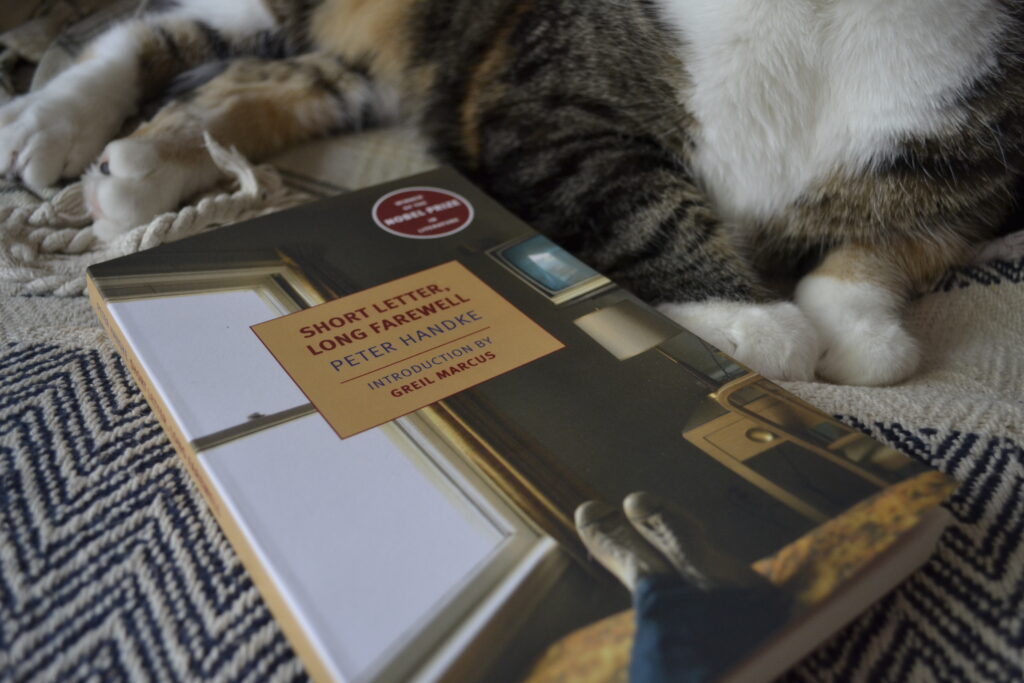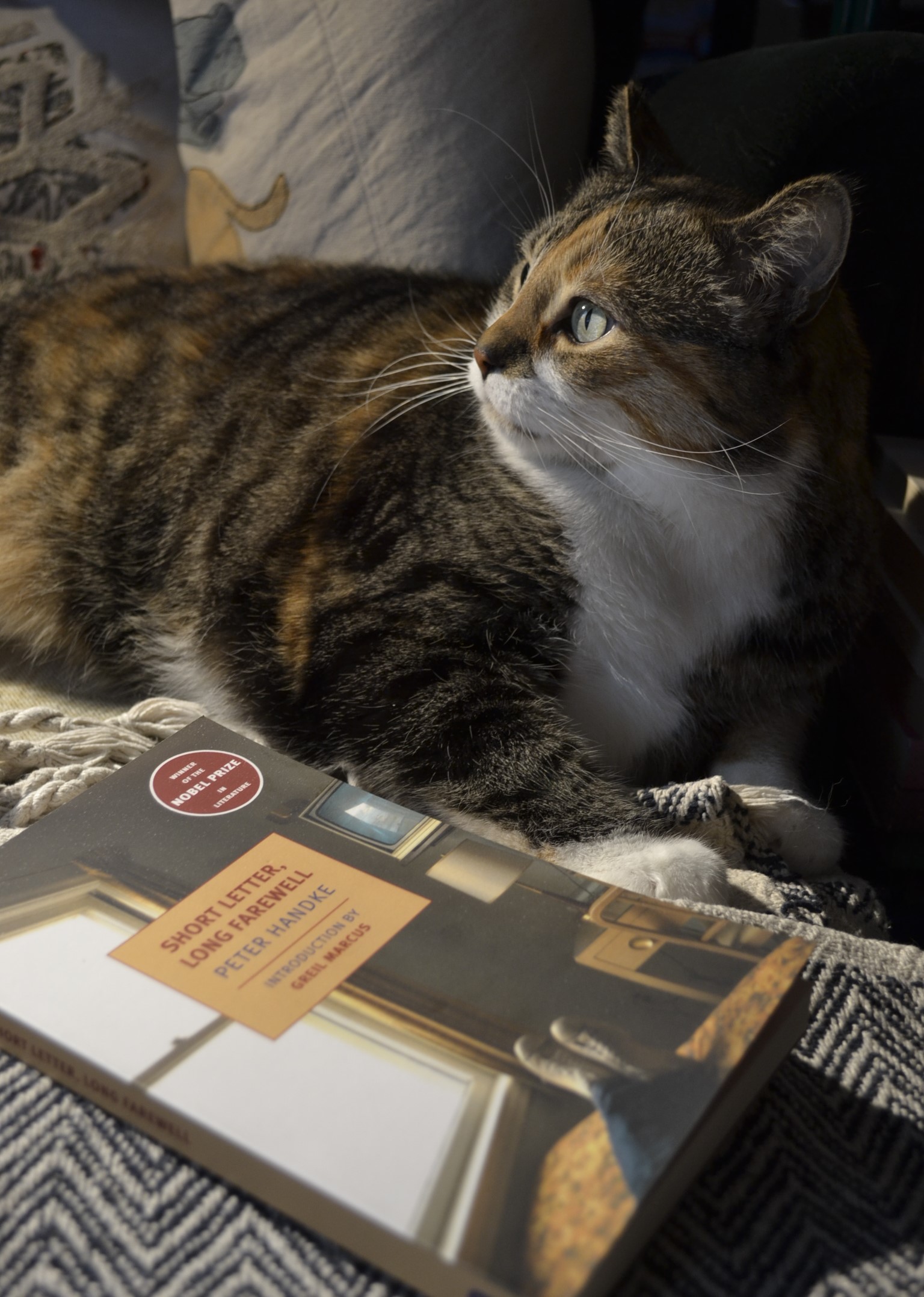Driving Home on Spring Nights
Through various twists and turns of fate, we’ve had a few long drives through the damp spring nights. More so than any other season, nights in spring feel like they exist in some kind of liminal zone. Not only do the headlights reflect on the million hidden eyes of newly hatched frogs and cavorting rabbits, but the emerging insect world is clumsy and drunk on new life. The chill in the air and the fog on the ground does not match the verdure of fresh grass and bursting leaves. Everything feels like it is in flux. Coiling. Ready to run when you aren’t looking at it.
And in the midst of the silence of the stars deep in farmland, it’s like, if you pause long enough, if you listen carefully enough, you might just hear the small snapping sound of growing.
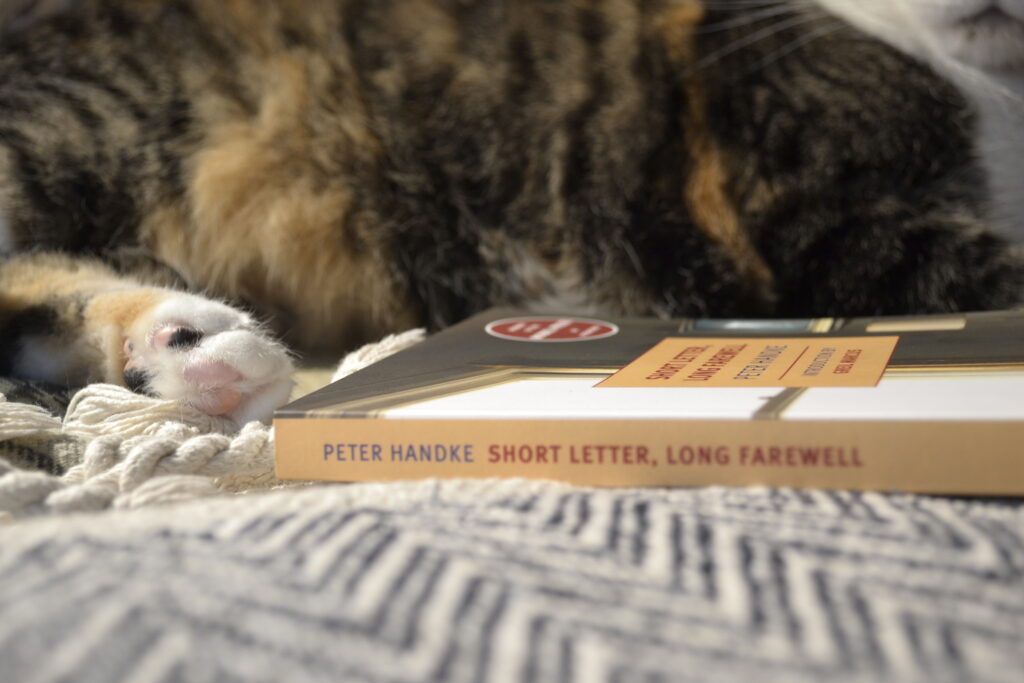
The Cinematic
I’ve been thinking a lot about the movies lately, especially after we’ve started to curate films for out local independent theatre’s film club. We’ve been watching more Criterion and I’ve been paying more attention to film as a visual medium for storytelling. I’ve also been looking at what makes a shot beautiful and what makes an experience cinematic. Why do we compare some unlike mediums to film? What links words with text with images and back to theme and statement?
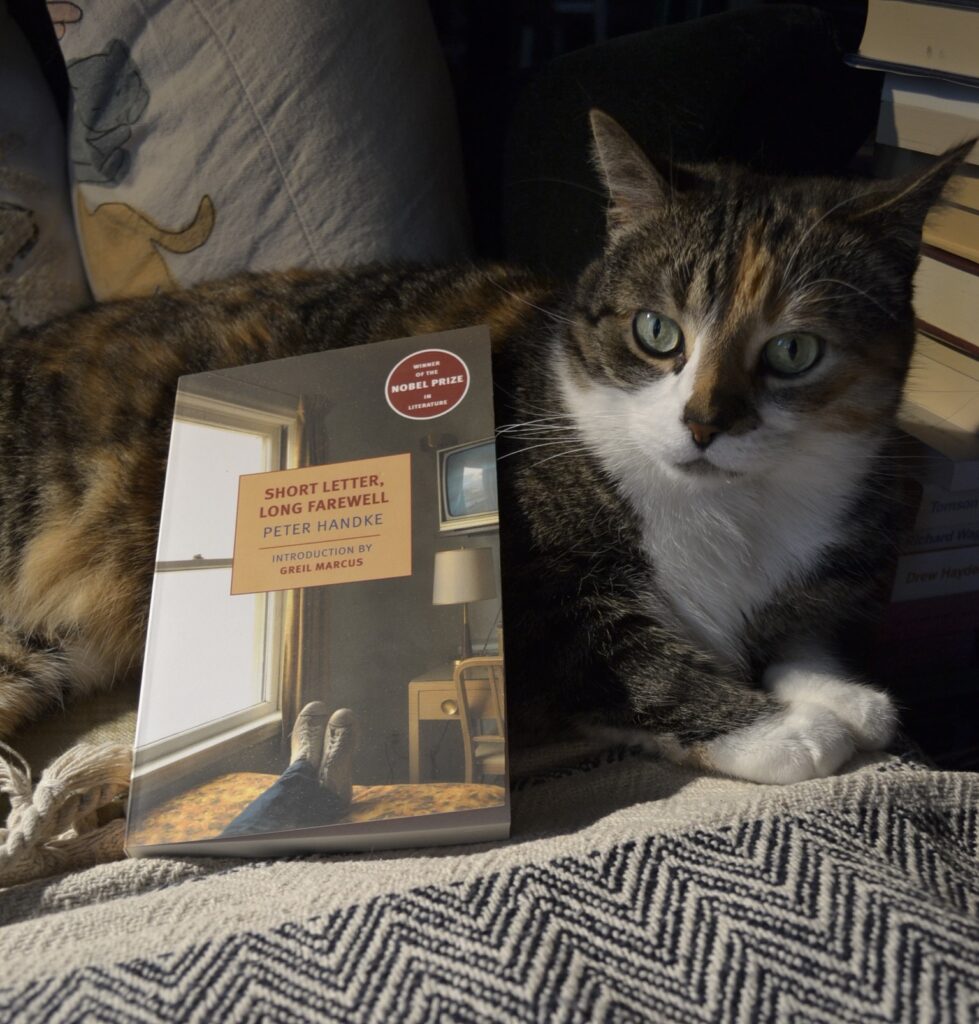
Peter Handke’s Short Letter, Long Farewell (Der kurze Brief zum langen Abschied) is a novel that seeks to answer some of these questions and pose a few new ones. A nameless German narrator is wandering aimlessly around America trying to escape his ex-wife, and trying to find meaning in the American landscape unfolding outside his car window. This novel is many things. Handke is exploring what it feels like to be an outsider in a land that has a heavy presence outside of its borders through the medium of film and popular culture. He is also asking what can be gained by running away from an inevitable ending and the people that define our lives. Handke’s descriptions and the flow of the narrative is meant to evoke a film instead of a typical novel structure, so much so that the reader can actually visualize the story as a series of images that tie back to a central theme.
You have to have a bit of patience to read this book, and to appreciate it. It is not very fast, and it is not a rollercoaster. It is contemplative and layered. No Micheal Bay here. Instead, expect Tarkovsky.
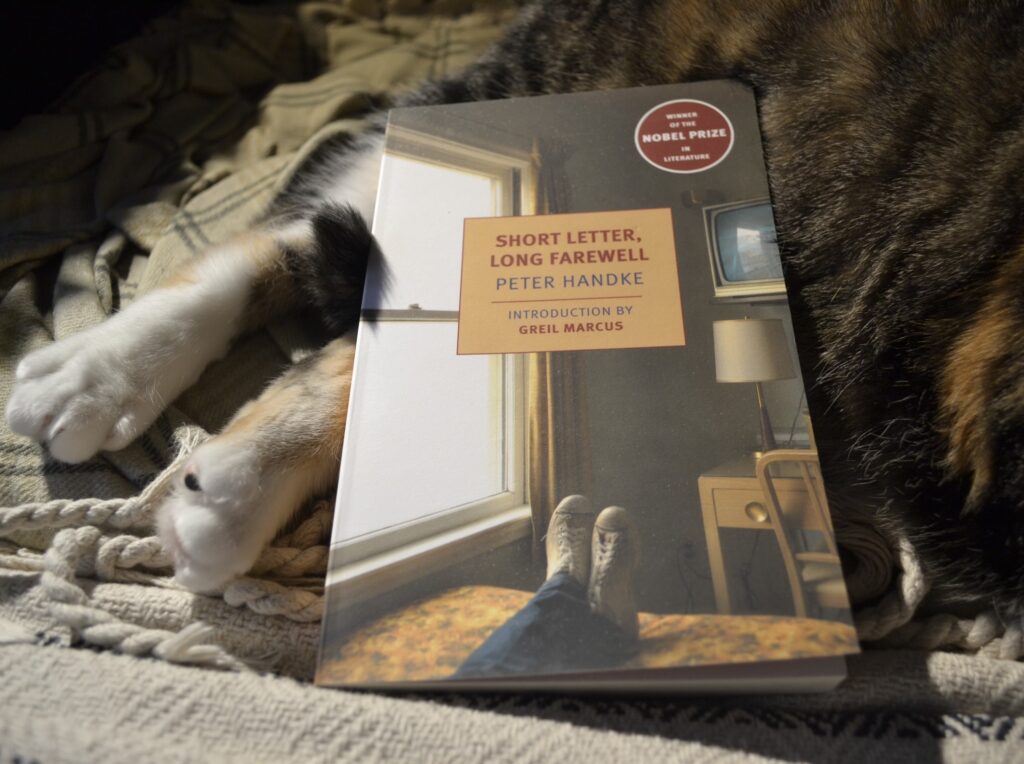
The Influence of Noir
If it wasn’t obvious from the plot summary alone, Short Letter, Long Farewell is heavily influenced by film noir. The plot does not drive forward in a straight line, but the one element that does provide consistent momentum is the narrator’s attempts to escape his ex-wife. Every time he arrives at a location, he shortly finds evidence of her presence. The motivation behind her pursuit is nearly as hazy as the reasons why the narrator is fleeing. There is a hint of bitterness, but the novel is about the chase alone instead of the logic behind it.
In the midst of this there are notes left at hotels and phone calls that can’t be connected and all of the signs and symbols that you can see in just about any noir film.
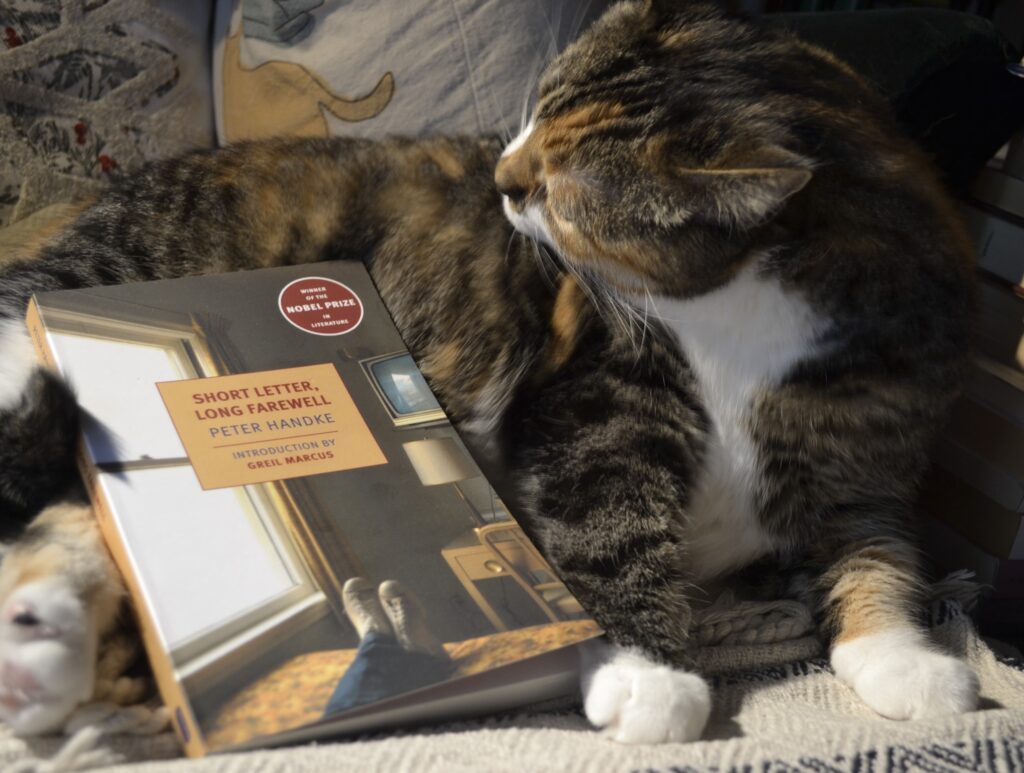
The Ending
Perhaps the strangest aspect of the novel is the ending. Without spoiling too much of it, I’ll go ahead and describe it as a long conversation with John Ford, the filmmaker. It sort of comes out of nowhere and it forms a conclusion that I’m not sure is very satisfactory. But the major issue? If you are not familiar with John Ford’s work, you are not going to get much out of it. At all.
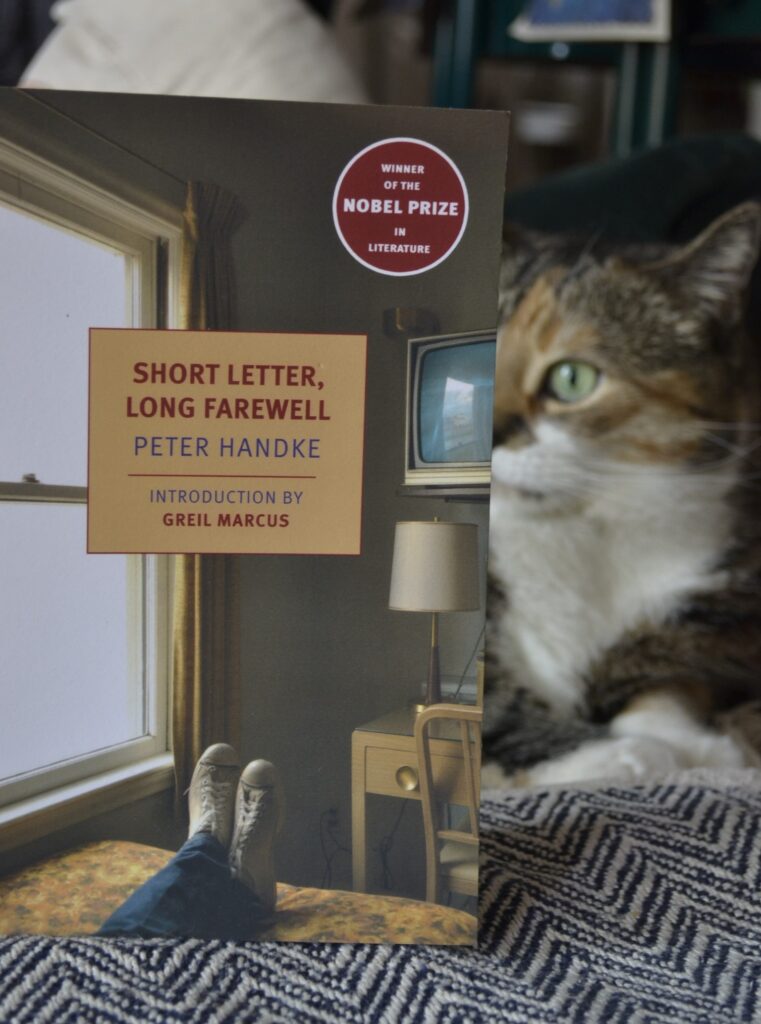
Handke has definitely written this book with film connoisseurs in mind, but it is annoyingly inaccessible for those film fans that are not as familiar with classic film or have just not seen a John Ford picture. My only recommendation is that a reader be sure to watch at least one of Ford’s films before you read this novel — my favourites are The Searchers and The Grapes of Wrath — if you want to get as much as possible out of Handke’s prose. It will give you a general sense of the cinematic atmosphere that Handke is striving to create, and it will provide the necessary background information in order to full appreciate the ending scene.
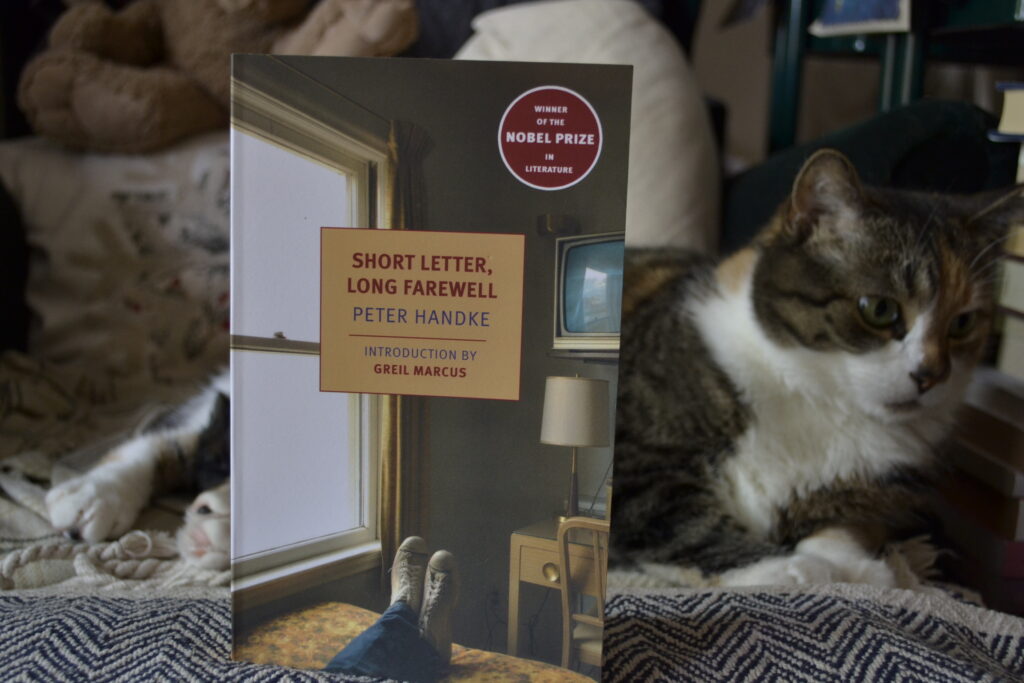
Hockey Continues!
In the midst of all of this warming sunshine, my mind is wandering back to the ice and the Stanley Cup. I’m new to watching hockey, so its still a bit odd to have one foot still in winter while the rest of me is helping planning the garden and worrying about mowing the lawn. But I’m sure that I’ll get used to it with every passing season.
The favourite team is out, so the cats are very happy to see the jerseys go away for the year. That doesn’t mean we’re done watching hockey, but I am less glued to the TV night after night, hoping for a miracle. There’s always next year.
